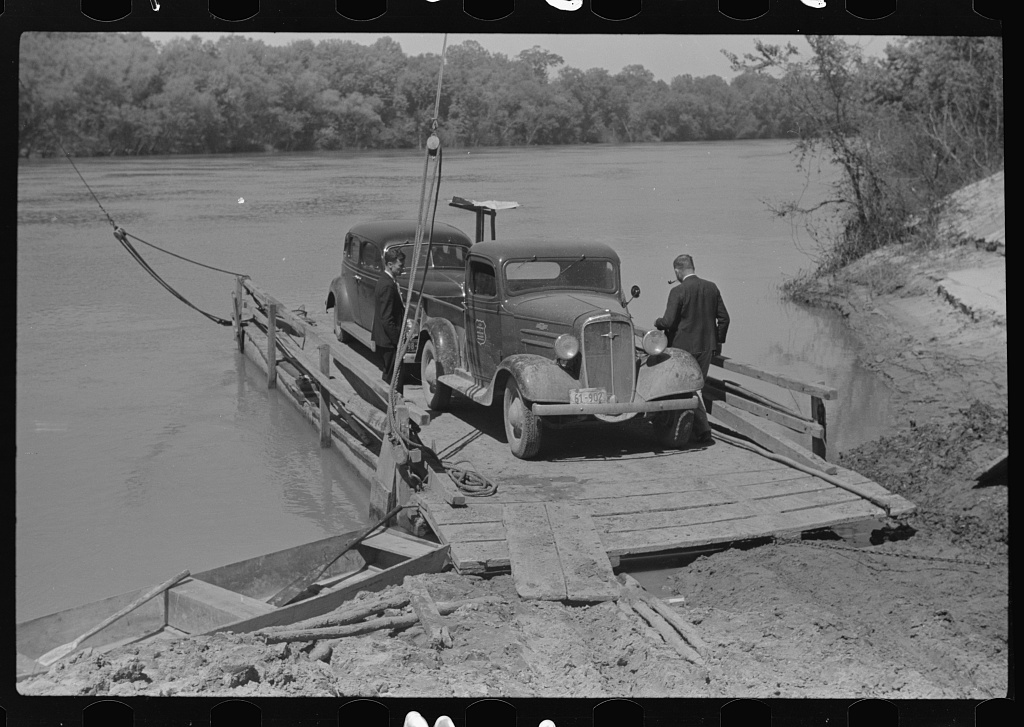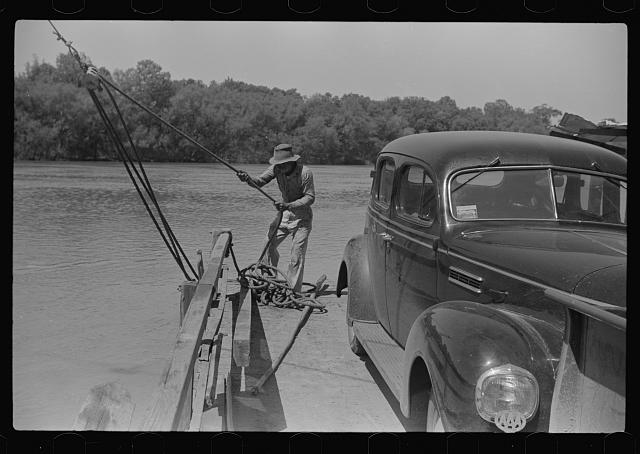Crossing Over
Chapter 3
A Change of Heart
On the surface, Mary Lee's river is just another plain brown river, skittering down the middle of the Deep South like a raindrop down a dirty window. But rivers have their faraway looks too.
Slow, timid, her river typically keeps to itself, hiding between steep banks the color of blushing cheeks. On hot summer days, it goes through the steaming fields at about the speed of a Model T, giving no sign of its quick temper, no hint of the Indians, settlers, slaves and steamships strewn along its floor, 40 feet down, all guarded by poisonous water moccasins and man-sized catfish and alligators that will bite a hound dog in half. 'No one,' a Camden minister wrote in the early '30s, 'plays in the Alabama River.'
It travels 315 miles, mostly in circles, and, like Mary Lee, it never leaves Alabama. The errant child of two capricious rivers--the Coosa and Tallapoosa, which twirl down from the Georgia mountains--it does what errant children do: whatever it wants. Above Gee's Bend, it becomes even more erratic, performing balletic loops and sluggish U-turns, staggering left and right before finally crashing into the Tombigbee, which takes it to the sea.
None of which describes Mary Lee's river.
Her river is a 'strong brown God,' as T.S. Eliot said of a different river, but also a way of thinking about God. Eternal. Silent. Life-giver and ruthless taker. It's the force that shaped Mary Lee's world, drew it like a hurried artist signing his name with a piece of charcoal in the lower right-hand corner of America. Some people spend their lives resisting what defines them. Mary Lee was baptized in the water that define her. She takes it as a given, and gives thanks.
Like God, the river is whatever those who love it or fear it say it is. Wild and calm, cruel and kind. For a black woman descended from slaves, its contradictions run deeper. It begs to be crossed and bars the way. There are reasons, spiritual and logical reasons, why rivers run through the epic poems and hymns of the African American tradition, whether the Congo or Ohio, the Gambia or Mississippi. 'I've known rivers,' wrote Langston Hughes. 'Whoever lifts himself,' wrote Jean Toomer, 'makes that great brown river smile.'

Project manager's truck coming across on ferry from Camden to Gees Bend, Alabama. Marion Post Walcott, 1939. Sourced from Library of Congress.
Mary Lee has known only one river, and she's never seen it smile. Maybe that's why she's always smiling, as if trying to compensate.
'I'm just a lovely person,' she says one morning in the midst of her chores. 'I'm not a person to be angry, I never was. When you be pleasant, your light shine better. Your eyes feel better. Your body be more easy. I don't care how much confusionment it is, if I can't laugh and talk with you, and be friendly nice with you, I don't be around you no more.'
Half a lifetime ago, Mary Lee relied on the river to protect her from those who couldn't be friendly, particularly a white man she'd never even met, a man she'll meet soon enough, if a ferry ever comes.
His name is Hollis Curl. As owner of Camden's only newspaper, the Wilcox Progressive Era, he helped lead the fight against King's movement, and in the heat of battle published some regrettable things about Mary Lee's people. 'I was as racist as anyone else,' he says. 'Not to the point where I'd mistreat anyone, but I wanted to preserve our way of life.'
Now, steaming his 50-horsepower pontoon past Gee's Bend, past a flock of cattle egrets perched like white question marks in a bare tree, Curl swears those days are as well behind him as the creamy wake of his boat. Today, he's the 63-year-old chairman of the Alabama Press Assn., the genial, grandfatherly figure behind the move to restore the ferry. 'I've undergone a metamorphosis,' he says. 'I'm the best friend [Benders] have.'
Not long ago, he was their worst nightmare.

Steering the ferry for a landing at Gees Bend, Alabama. Marion Post Walcott, 1939. Sourced from Library of Congress.
'There's a code of behavior between whites and niggers,' Curl said in 1970. 'Say a colored man comes into your place of business wearing a hat. And a white man comes in at the same time wearing a hat. The white man may leave his hat on, and you don't notice this. You probably wouldn't notice whether he had a hat on or not. But if the colored man doesn't take his hat off when he comes in, you're going to notice it. Nobody ever told me to be sure and watch and see if this nigger takes his hat off. He just does.'
Curl said and wrote what his readers believed, and enforced their beliefs as well. Besides owning the newspaper, he served as city court judge, jailing blacks whenever they marched through town without a parade permit. 'They sang 'We Shall Overcome' so many times,' he says, 'we started to memorize the words.'
One day, Curl jailed 410 men and women, a number he cites with pride, to show how much he's overcome.
Though he wasn't party to the decision, getting rid of the ferry seemed like a fine idea to Curl. If the law couldn't keep the races apart, why not let the river. Later, when the Army Corps of Engineers dammed the river to make it more navigable, widening the gap between Camden and Gee's Bend to a full watery mile, fate seemed to be reinforcing the river's segregation.
Then, nine years ago, Curl suffered an acute attack of remorse. Out of nowhere, he says, a thought dawned: Maybe the river is wrong. Maybe his dead hunting buddy, Sheriff Lummie, was wrong. In a front-page column that caught Camden off guard and ultimately led to the coveted Sigma Delta Chi prize for journalism, Curl called for a new spirit of racial cooperation, and a new ferry as its symbol.
Some readers applauded. Others recoiled. Most paid Curl no mind. Wilcox County is one of the poorest in the nation, with barely enough money for tractors to resurface the dirt roads, let alone a ferry to reunite two historically alienated communities. So when Curl wrote a second ferry column, and a third, most folks figured he was wasting his time.
Years passed. Curl gave up. Then, three years ago, a few of his old ferry columns caught the eye of Mary Lee's new congressman, Earl F. Hilliard, the first black representative from Alabama since 1876. Hilliard knew Gee's Bend. He'd marched with Benders in the '60s. He remembered their poise under fire, their role in the movement. When he learned they were still without a ferry, he came and stood with Curl by the river.
After a short news conference, to announce that they would find a way to restore the ferry, the two men cast off in Curl's boat, hailing 'a new day in Wilcox County.' They made an unlikely pair, and everyone went down to the river to hear what they had to say.
Everyone except Mary Lee.
She had work to do.




